Voulez-vous parler français avec moi ce soir?
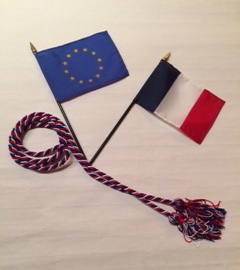
A doorway to a particular culture, studying a foreign language broadens our understanding of cultural, racial, or social dimensions, and allows us to be more flexible, to appreciate other ways of doing and looking at things, and to see the world from different vantage points. In today’s interconnectedness, this is an invaluable tool.
The scientifically uncontestable cognitive and mental benefits of learning a foreign language also bring a host of social, cultural and personal advantages, from self-discovery to improving and appreciating one’s own native language. To reinforce all the benefits of language study, the French Studies Department offers several opportunities to enrich the classroom experience with relevant experiential learning.
Experiential learning in French supports students in applying their knowledge and conceptual understanding to real-world situations, and teaches students the competencies they need for real-world success. Experiential learning immerses students in an active and shared learning environment, and the department is particularly proud of its wide array of curricular and co-curricular experiential learning opportunities from study abroad programs in France and francophone countries, to prestigious national fellowships to teach in France; from language theme residences, to lectures, film festivals and conversation hours; from tutoring, mentoring and work study, to internships and independent research options; from membership in the national French Honor Society, to faculty advising and mentoring for advanced graduate studies in French and international affairs.
The curriculum in French offers students flexibility to select their field of study to suit their personal interest. Students can buttress their French courses with international politics and international business and economics. Majors can combine French with studies in the arts, such as, music, theater, other national literatures, and the visual arts. In all the French major areas of studies, courses include active participation that require group activities and projects that encourage collaborative learning in meaningful life experiences. Two brief examples of innovative nationally recognized classroom pedagogy for illustration:
In French 240: Contemporary French Issues, students collaborate in small groups on a marketing campaign to design a product or a service to sell in France. They present their final project to the class, complete with PowerPoint and videotaped ads for the product.
In French 380: Advanced Studies in French & Francophone Culture, with the help of “Reacting to the Past”, a role-playing historical simulation, students actively grapple with philosophical debates and cultural circumstances, practicing their oral, argumentative, collaborative and research skills.
Please consult with department advisors to explore the array of available initiatives. The department homepage lists all the courses in French, and details the curricular options to major in French Studies.
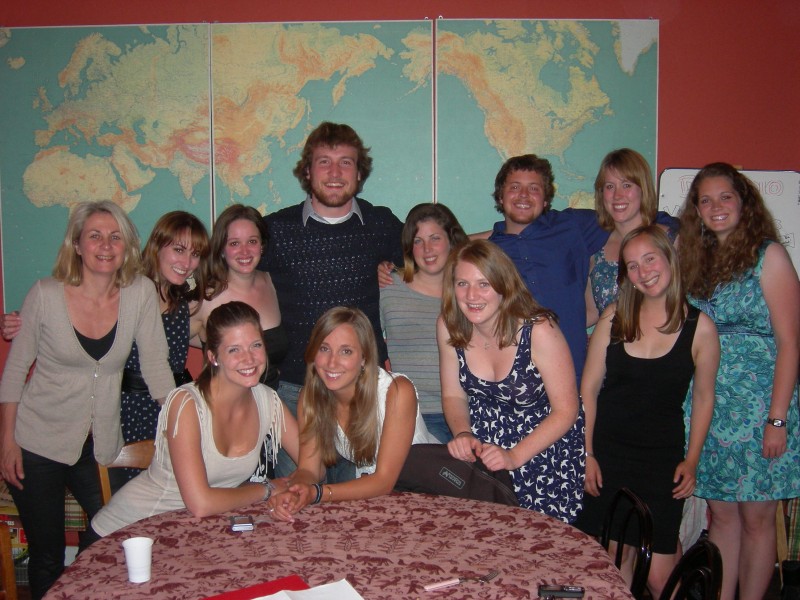
Study abroad

Study abroad programs in France are available in Paris and Nantes through IES, and the university sponsors programs that offer French instruction in Madagascar, Morocco, Senegal, and Switzerland. More details are available from the Office of International Programs.
Language-Themed Residences, & Co-Curricular Activities
The department supports the learning concept of a living-learning residential environment and encourages students to participate in language residential programs by selecting university-owned houses on campus to communicate in French in small group settings. The International District located in Commencement Hall offers cultural programs and activities to students with varied international experiences and backgrounds. Applications for the Michel Rocchi International District, and for language-based theme houses are available from the Office of Residential Life and on the department homepage.
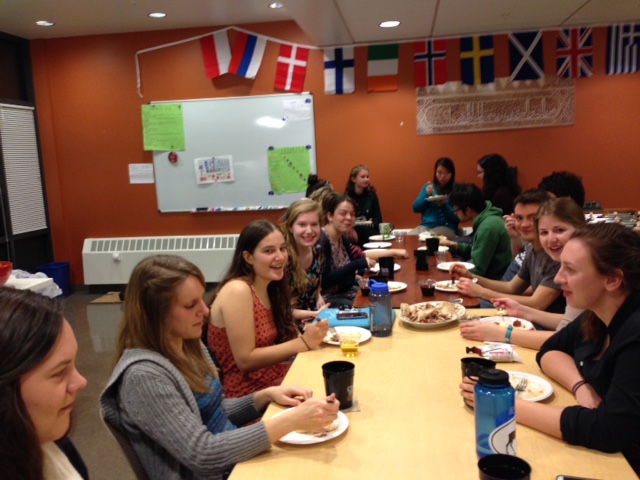
The faculty sponsor French Conversation Hours each semester with student-led initiatives. We hold Film Series, and organize several French cultural events, such as visits to museums, theater performances, and concerts.
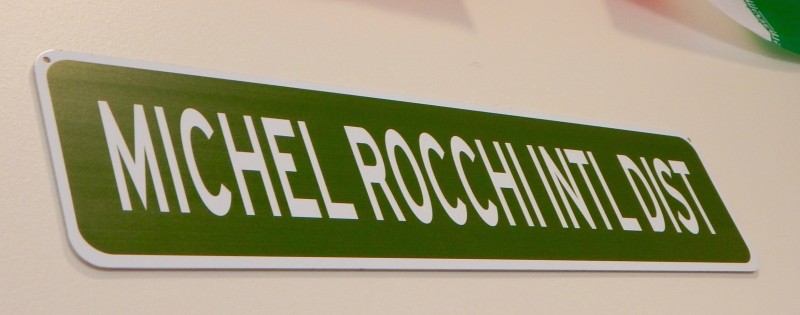
Leadership Opportunities
The department encourages students to assume leadership positions to collaborate with and to help their peers by applying for the various leadership positions to use their language and cultural experiences, such as tutoring, peer advising, mentoring, work study, and residential assistants. Here are some examples:
- French Tutors are selected and trained in the Center for Writing & Learning. Tutors work closely with department faculty members on specific skills to help students individually or in small groups with grammar questions, conversation skills, and they are specially trained to help them with papers, organize their thoughts, and improve their editing skills.
- French Peer Advisors assist faculty advisors with the academic advising process for entering first year students. The experience of working with faculty members and students is a valuable learning experience.
- French Student Mentors volunteer to help students with oral fluency, study abroad questions, and any other tasks the faculty in French may assign.
- French Work-Study: The department annually selects students for employment to assist faculty in departmental tasks. Work-Study students become familiar with the faculty and their academic work, and acquire valuable experience in applying their use of French to relevant activities.
Teaching Assistantship Program in France (TAPIF)
We have an excellent record of mentoring and helping graduating seniors apply for and secure yearlong teaching assistantships in France. The nationally coveted assistantships, administered by the French Ministry of Education, offer students the opportunity to work in France for an academic year, teaching English to French students. These opportunities allow recent French graduates to work and live in France to expand their cultural horizons and share their language and culture with French students.
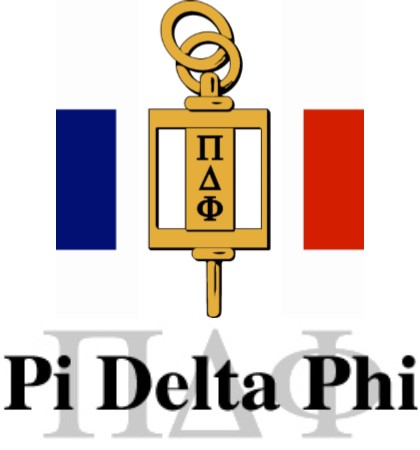
National French Honor Society
The Department of French Studies has applied for and been accepted to join the National French Honor Society, Pi Delta Phi, in 2014. The Society recognizes outstanding scholarship in the French language and francophone literatures, to increase the knowledge and appreciation of students for the cultural contributions of the French-speaking world, and to stimulate and to encourage French and francophone cultural activities.
Pi Delta Phi offers scholarships for summer study abroad and travel grants that recognize superior achievement in the study of the French language. The Society is also an excellent networking resource for graduate studies and scholarship opportunities. Consult the department homepage for eligibility and selection process.
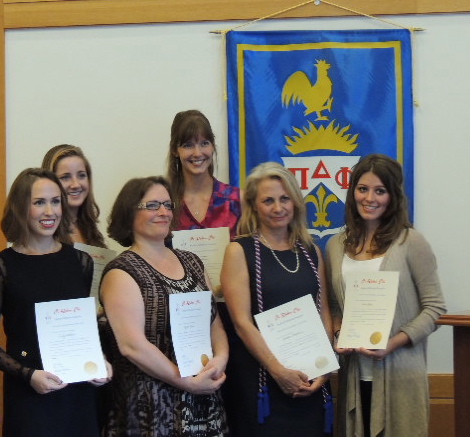
Senior Reflection
As experiential learning is a process through which students develop knowledge, skills, and values from direct experiences outside strictly traditional academic settings, its capstone is the analysis and synthesis of the knowledge and activities that students have experienced. To help in this reflective process, graduating seniors in French Studies are required to prepare a portfolio of their undergraduate years’ achievements, and to write a substantial self-reflective statement that assesses their academic growth, reflecting on the experience in the department and in the major. French literature majors are also required to complete a senior thesis that demonstrates their ability to do literary analysis appropriate to the undergraduate level in French, as well as facility with and awareness of critical method.